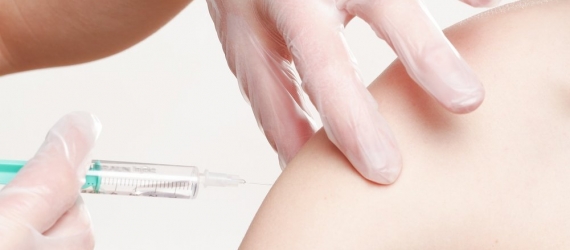 https://www.splice-bio.com/wp-content/uploads/2018/12/scorpion3.jpg
650
1000
Splice
https://www.splice-bio.com/wp-content/uploads/2020/12/Splice-logo.png
Splice2018-12-19 15:25:432021-09-20 10:08:37A silent killer: The Gadim scorpion is the most dangerous scorpion of Iran
https://www.splice-bio.com/wp-content/uploads/2018/12/scorpion3.jpg
650
1000
Splice
https://www.splice-bio.com/wp-content/uploads/2020/12/Splice-logo.png
Splice2018-12-19 15:25:432021-09-20 10:08:37A silent killer: The Gadim scorpion is the most dangerous scorpion of Iran https://www.splice-bio.com/wp-content/uploads/2018/12/scorpion3.jpg
650
1000
Splice
https://www.splice-bio.com/wp-content/uploads/2020/12/Splice-logo.png
Splice2018-12-19 15:25:432021-09-20 10:08:37A silent killer: The Gadim scorpion is the most dangerous scorpion of Iran
https://www.splice-bio.com/wp-content/uploads/2018/12/scorpion3.jpg
650
1000
Splice
https://www.splice-bio.com/wp-content/uploads/2020/12/Splice-logo.png
Splice2018-12-19 15:25:432021-09-20 10:08:37A silent killer: The Gadim scorpion is the most dangerous scorpion of Iran
Learning The Results of a DNA Test Could Change Your Body
Last year, millions of people in the United States alone have submitted their DNA for analysis. Stanford researchers have found that information people receive not only predicts their risk for disease but, it turns out, in some cases might also…

Measles Outbreaks Catalysed by Vaccine Hesitancy
The increase in measles, a highly contagious scourge that had been nearly eradicated in many parts of the world, is concerning health officials. In Europe, measles had reached the highest levels in two decades. Experts blame this surge in infections…

Feeding Cows Seaweed Could Cut Methane Emissions
A research group from the University of California has discovered that a diet supplemented with seaweed could lessen the huge amounts of greenhouse gases emitted by cows and sheep. Even when small amounts of seaweed were added to the feed, the…

An Extra-Spicy Plant Could Help End the Opioid Crisis
Researchers have taken an interest in a euphorbia plant growing in Marocco as a possible painkiller. The plant’s active ingredient, resiniferatoxin (RTX), is extremely spicy, a 10,000 times hotter than the world’s hottest pepper. RTX…

Bugs on Drugs: Devastating Effects of Pharmaceutical Pollution
An international team of researchers detected a vast sixty-nine pharmaceutical compounds in stream insects. When these insects emerge as flying adults, they can pass these drugs further to spiders, fish, birds, bats, and other streamside foragers.…

Air Pollution Is the New Tobacco
Air pollution has become one of the biggest threats to public health worldwide. Now, the World Health Organisation (WHO) brought together government officials and health experts in the first-ever international air pollution conference. This…

“Smart” Surfaces That Repel Harmful Microorganisms
Researchers from McMaster University in Canada have engineered "smart" surface coatings that can repel almost everything, including bacteria, viruses, and living cells. A new feature of this technology is the possibility of modifying the coating…

Kimchi-Derived Probiotics: A Remedy for Eczema?
Most people who have been to Korean restaurants will be familiar with a signature Korean dish called Kimchi. This traditional dish has been consumed for thousands of years and is made from a mixture of Chinese cabbage, herbs and spices which…

Wireless Implant That Heals Damaged Nerves and Self-Destructs
Researchers have developed an implantable, bioabsorbable, wireless device that speeds recovery in rats by stimulating injured nerves with electricity. It accelerates the regrowth of nerves and enhances the recovery of muscle strength and control.…
Most popular
Best Electronic Lab Notebooks (ELN Reviews) in 2024December 13, 2023 - 8:00 am
Best Single-cell RNA Sequencing Data Analysis SoftwareJanuary 3, 2022 - 8:46 am
The Next Generation Of Antivenom Production Holds Many Possibilities For The FutureMarch 17, 2021 - 8:19 am
Connected Laboratory & the Role of IoT in ScienceFebruary 4, 2020 - 4:02 pm
The Importance of Better Digital Data Management in Laboratories and The FAIR FutureFebruary 4, 2020 - 3:06 pm
Tags
aging
animal
bacteria
brain
cancer
cell culture
Contamination
CRISPR
data
detection
diabetes
diagnostics
disease
dPCR
drug
Ebola
evolution
food
genome
Genomics
GMO
immune system
lab automation
laboratory
microorganisms
mutation
NGS
PCR
pipetting
plant
protein
qPCR
scientific project
scientific publication
SciNote
sequencing
space
stem cells
test
therapy
tumor
vaccine
virus
water
Zika
